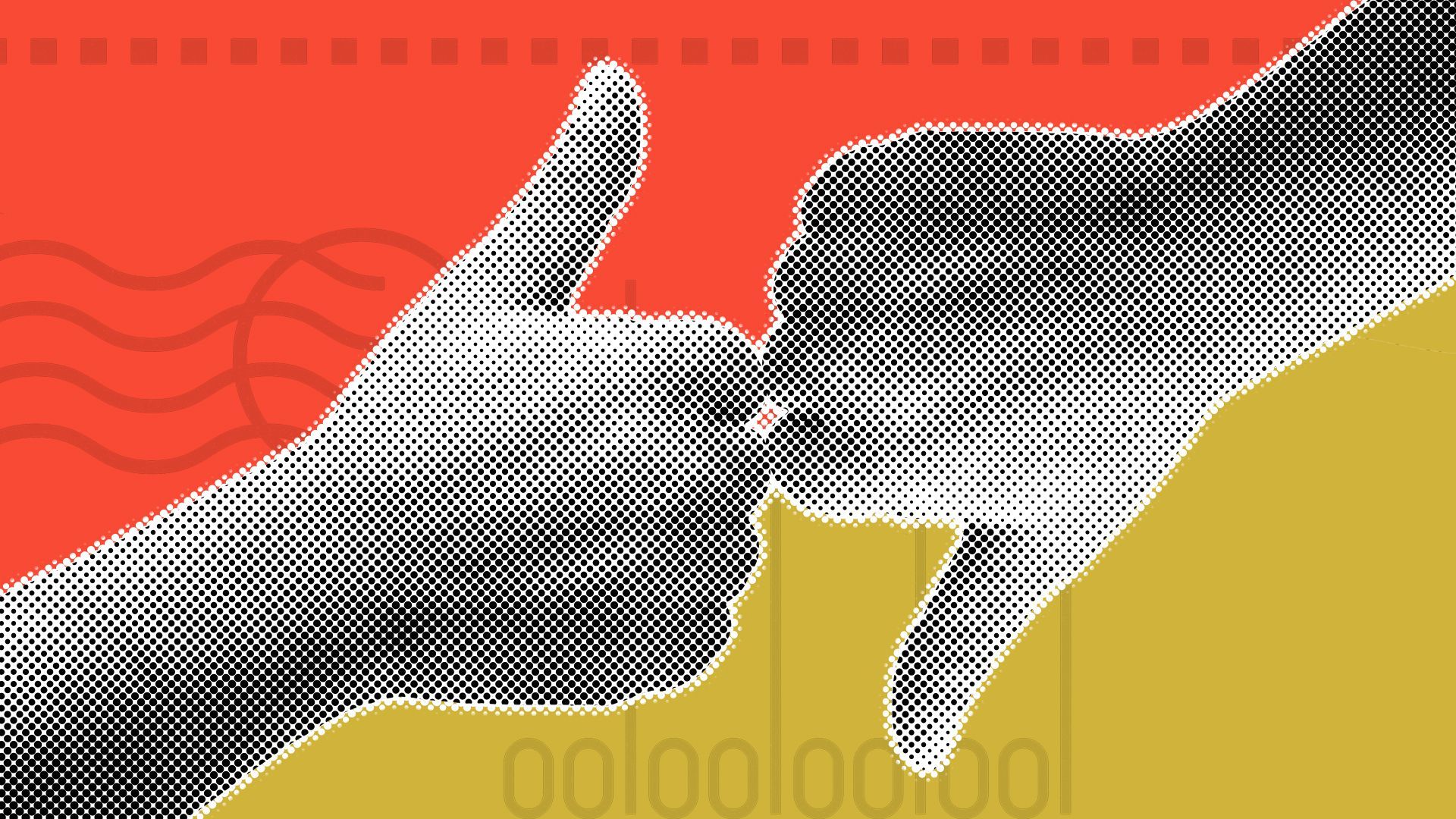Seattle's election reform showdown
Add Axios as your preferred source to
see more of our stories on Google.

Illustration: Lindsey Bailey/Axios
Seattleites will decide Tuesday whether to change their system of voting — and if so, how.
Driving the news: City voters are being asked to choose between two new ways of conducting primary elections: Approval voting, in which voters can OK any number of candidates, or ranked-choice voting, which lets voters choose candidates in order of preference.
Voters could also reject both systems and stick with the status quo, in which they can only pick one candidate in the August primary.
Why it matters: Supporters of the proposed reforms say their plan would make the city's elections less politically divisive.
- But the two camps disagree about whether approval voting would give too much power to the few people who vote in low-turnout primaries — and if the less tested approval voting system would prompt legal challenges.
What they're saying: Supporters of approval voting say it is more straightforward for voters and less work for election officials to implement.
- Logan Bowers, co-chair of the Seattle Approves campaign committee, said the system would let voters pick all the candidates they like, without forcing them to choose between candidates who may share similar views.
- Such a reform, he said, would ensure the two people who advance to the November election have the widest base of voter support. He predicted that would make for more competitive general elections.
- "It gets you the person the median voter wants," Bowers told Axios.
The other side: Kamau Chege, who serves on the ranked-choice voting steering committee, said approval voting would give whiter, wealthier voters who participate in primary elections a greater number of votes, allowing them to exercise outsized influence on who advances to the November ballot.
- He's concerned that such a system would violate the principle of one person, one vote, and that it could be challenged under Washington state's Voting Rights Act for hurting representation for racial minority groups.
- Ranked-choice voting, Chege added, "gives voters more voice and power by letting them specify which candidate is their favorite, and which they'd support as a backup if their favorite can't win."
Zoom out: Ranked-choice voting is used in dozens of jurisdictions across the U.S., including in New York City, Minneapolis, Utah and Alaska.
- Approval voting is used in only two places: Fargo, North Dakota, and St. Louis, Missouri.
- Bowers noted that approval voting hasn't drawn a legal challenge in either city.
Yes, but: Proponents of keeping the status quo say adopting either change would be costly and confusing.
Reality check: While the approval voting campaign claims it could be implemented for less money than ranked-choice voting, Halei Watkins, spokesperson for King County Elections, told Axios that the two voting systems would likely have similar startup costs. Those could range from $2 million to $4 million.
- "Things like software updates, staff time, and robust voter education will be needed with either change," Watkins wrote.
- Still, the ballot measures set different implementation deadlines, with approval voting to be in place no later than 2025, and ranked-choice no later than 2027.
Of note: If enacted, either voting reform would apply to races for Seattle City Council, mayor and city attorney — not federal or state races.
What we're watching: The approval voting campaign had a large cash advantage at first, with more than $300,000 contributed by the nonprofit Center for Election Science and $135,000 from Samuel Bankman-Fried, a cryptocurrency billionaire based in the Bahamas.
- But in recent weeks, FairVote Action — a national group that promotes ranked-choice voting — has given $390,000 to Seattle's ranked-choice campaign, helping level the financial playing field.
- The campaign to keep voting the same has raised substantially less — only about $45,000, according to campaign finance reports.
The big picture: Nationwide, nine other jurisdictions also have ranked-choice ballot measures going before voters next week.
- They include the state of Nevada; Clark County, Washington; Portland, Oregon; Multnomah County, Oregon; and San Juan County, Washington.
